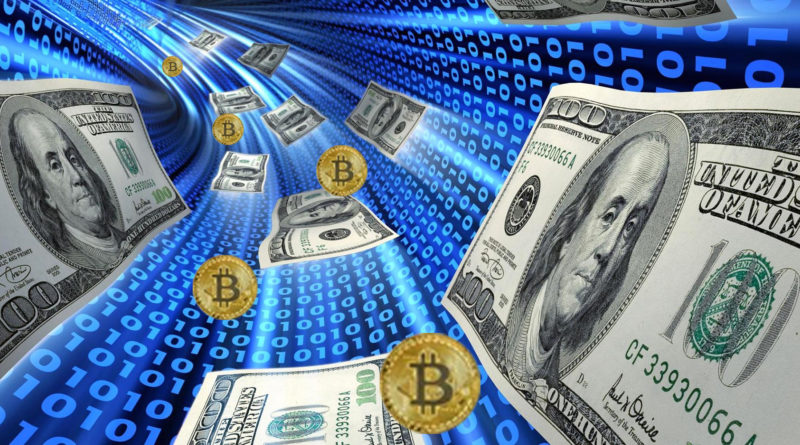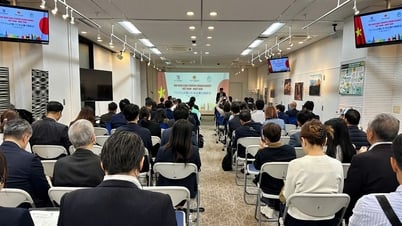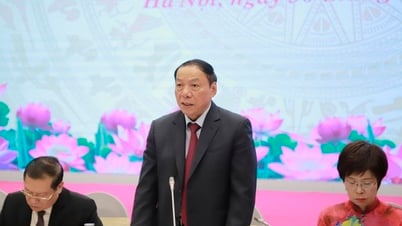As expected, at the 9th Session of the 15th National Assembly opening next week, the National Assembly will discuss and approve the Draft Law amending and supplementing a number of articles of the Law on Bidding; Law on Investment under the public-private partnership model; Law on Customs; Law on Export Tax and Import Tax; Law on Investment; Law on Public Investment; Law on Management and Use of Public Assets.
Notably, the draft Law amending and supplementing a number of articles of the Investment Law will add the industry and profession of "business of supporting services for transactions on the carbon market" and the industry and profession of "providing services related to crypto assets" to the list of conditional investment and business industries and professions.
 |
The carbon market and the crypto-asset and digital asset markets have been developing strongly recently, and many countries are also perfecting the legal corridors in these areas.
Ms. Truong Hanh Linh, executive member of KPMG Vietnam Tax and Consulting Co., Ltd., said that according to the latest statistics conducted by Mastercard in 2024, the market capitalization of digital assets reached about 2,700 billion USD and 12/20 countries in the G20 group, accounting for 57% of global GDP, have regulations related to digital assets. The above figures show strong interest in digital assets in the recent period from the market and stakeholders.
Vietnam is among the world's leading countries in terms of access to and use of digital assets. However, Vietnam still does not have an official legal framework for digital asset investment, although domestic digital asset trading and buying and selling activities are still very active and through international exchanges; or direct agreements. This has posed unprecedented challenges to standards, regulations on assets, financial markets, valuation requirements as well as risk management and control for this type of asset.
Regarding carbon credits, according to Ms. Linh, the 2020 Law on Environmental Protection No. 72/2020/QH14 defines: carbon credits are tradable certificates, representing the right to emit one ton of CO2 or equivalent, showing initial recognition of carbon credits commercially. However, the legal framework for carbon credits still needs to be supplemented and further improved.
Recently, many experts have even suggested that the legal framework could be improved to allow a pilot program to consider carbon credits and digital assets as bank collateral.
"Vietnam needs to learn and learn practical lessons from some countries such as the EU, Singapore or Brazil in implementing the carbon credit exchange market as well as making this credit a collateral asset in credit activities. Carbon credits must be recognized as assets and must be clearly defined as a type of "asset" or "property right" in the Civil Code; they can be valued, transferred, pledged, mortgaged, similar to stocks and bonds. Regulations on mortgages, handling when borrowers are unable to pay, guidance on the valuation mechanism and a regularly updated carbon credit transaction price list, accepted by state management agencies or trading floors. Vietnam has Decree 06/2022/ND-CP on emission reduction and carbon market development, but there needs to be more specific guidance documents on trading, buying, selling, and mortgaging credits," Ms. Linh suggested.
Meanwhile, according to Dr. Lawyer Vu Van Tinh, Director of Salus Law Company Limited , Vietnam should study and issue a separate law or decree on digital assets, clearly defining the responsibilities of related parties such as issuers, exchanges, investors and requiring operating licenses. On the other hand, strengthen supervision against money laundering and terrorist financing, requiring exchanges to register with the management agency.
In addition, it is necessary to publicize information on risks, transaction fees, and energy consumption of digital asset projects to protect consumers and the environment; Develop a legal mechanism for smart contracts, ensuring legal binding when used in digital asset mortgages; Allow digital asset mortgages in real estate transactions, reduce barriers for foreign investors and optimize taxes...
In the immediate future, it is possible to issue a sandbox testing regulation allowing some banks or financial institutions to pilot digital asset mortgage loans for 3-5 years; Evaluate the pilot results to adjust the legal framework, ensuring a balance between innovation and risk control; Prioritize highly liquid digital assets during the testing phase; consider establishing a specialized agency to monitor the digital asset market, ensuring compliance with regulations on capital, risk management, and anti-money laundering.
One of the contents that needs to be implemented is a programto educate people about the risks of digital assets and how to safely use digital mortgage platforms; build a warning system and provide legal support for investors facing risks in digital asset transactions.
Source: https://baodautu.vn/dich-vu-lien-quan-den-tai-san-ma-hoa-se-la-nganh-kinh-doanh-co-dieu-kien-d275885.html


![[Photo] Journalists moved to tears at the Memorial Service for the soldiers who died in Gac Ma](https://vphoto.vietnam.vn/thumb/1200x675/vietnam/resource/IMAGE/2025/5/30/9454613a55c54c16bf8c0efa51883456)
![[Photo] General Secretary To Lam receives Chief of the Central Office of the Lao People's Revolutionary Party](https://vphoto.vietnam.vn/thumb/1200x675/vietnam/resource/IMAGE/2025/5/30/140435f4b39d4599a3d17975dfb444c5)

![[Photo] National Conference "100 years of Vietnamese Revolutionary Press accompanying the glorious cause of the Party and the nation"](https://vphoto.vietnam.vn/thumb/1200x675/vietnam/resource/IMAGE/2025/5/30/1cf6cd5c8a934ebfa347028dcb08358c)
![[Photo] A delegation of 100 journalists from the Vietnam Journalists Association visits the soldiers and people of Truong Sa island district.](https://vphoto.vietnam.vn/thumb/1200x675/vietnam/resource/IMAGE/2025/5/30/0984a986227d4e988177f560d2e1563e)



















































































Comment (0)